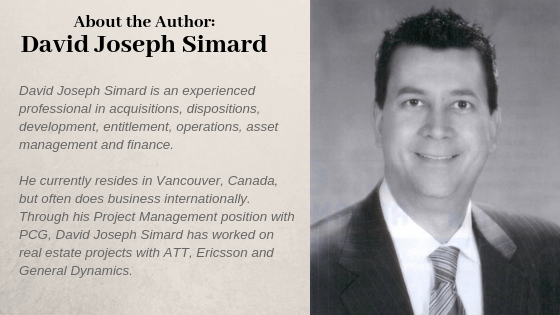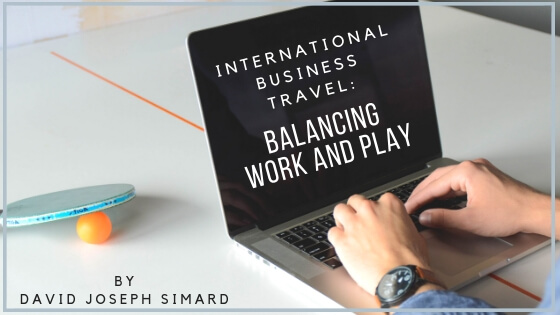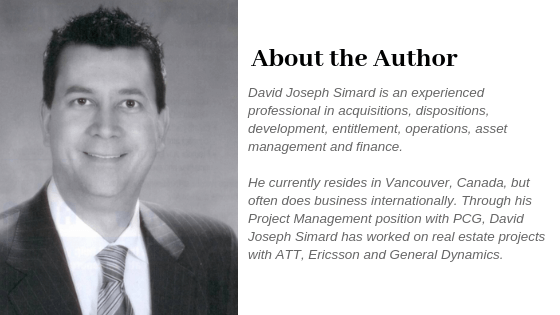
How Leadership Varies Between Countries and Cultures
Leadership is not created equal. Each culture (and even country) operate differently, as far as leadership is concerned.
Because the role of leaders is becoming more globalized, they must learn to know how to be the most efficient in different parts of the world, and when working with a multicultural team.
Making Decisions
When it comes to decision making, there are two styles. The first is the synchronized way of decision making. This type of leadership behavior is appreciated most in Northeast Asia, Thailand, Indonesia, and a large part of Central and South American countries. Leaders who follow this strategy should seek consensus on decisions, although it might take longer.
On the other hand, an opportunistic leader is more individualistic and risk-taking, although checking up on the team is still important on a regular basis. The opportunistic method of making decisions is one that is preferred in Nordic and Germanic Countries, the United Kingdom, Western developed countries who are subdivisions of the English cultural influence (USA, Australia, and New Zealand), and Asian countries that developed their economies under the UK, such as India and Malayasian countries.
Communication
Communication between different cultures influences the type of leadership that is followed there. The straightforward manner of communicating is expected in Northeast Asia and countries like the Netherlands. The people there are used to getting straight to the point. The approach is less individually sensitive and things are communicated straight away.
On the other hand is the diplomatic way of leadership, more often used in countries like Latin America, Sweden, New Zealand, and Canada. Employees in these regions are much more keen to follow someone who is pleasant and diplomatic in their approach. Confrontations should be started with a dose of empathy and tactfulness.
Whatever it means to be a leader in different cultures, the individual should still be taken into account. What is the way to individually manage each employee with their specific needs and temperament? How should leaders from different backgrounds best interact with each other?
In any case, leaders are forced to be increasingly flexible in a globalized society that is comprised of many different cultural expectations. The goal isn’t simply to avoid offending other business professionals. It should also be to communicate and lead in the most effective way possible.


International Business Travel: How to Balance Work and Play
Business trips are more common than ever in today’s business world. We truly live in a global economy.
While business trips have their own sense of excitement, professionals are doing their best to make the most of these travel opportunities.
How you spend your free time will vary by country. In some regions, it’s better to stay with a group. Other times, you’ll be able to go out and explore on your own.
Regardless of your plan, be sure you’re always respecting the cultures of your new destinations — in and out of the office. For example, know how to introduce yourself properly, restaurant etiquette, lodging expectations, etc.
Traveling for Work and Making Time for Adventure
Getting to travel the world for business leaves professionals with the unique opportunity to explore new cities. Here are a few tips for taking advantage of the time you have.
1. Utilize Coffee Breaks
The daily coffee break presents a unique opportunity to explore. When on a work trip, make an effort to travel to a new coffee shop. By forgoing the nearby Starbucks, working travelers will be able to get out of their comfort zones and see more of the new city they are visiting. This helps travelers get a sense of the local atmosphere while tasting some authentic food.
2. Plan Business Meetings Wisely
Business meetings are a fact of any work trip. By scheduling them wisely, travelers can fit in more time to take in the sights of a new city. One of the best ways to do this is to have a business meeting near a specific location like a museum, attraction or anything else that may offer visitors a unique experience. This intentional scheduling cuts out any wasted time that would have otherwise been spent commuting between the hotel and the meeting.
This isn’t always possible because you often have to work around conflicting schedules, but keep this tip in mind for if the opportunity arises.
3. Enjoy the Night Life
Work trips can be tiring, but visitors should take advantage of every free moment they have. Instead of spending an evening in the hotel room, check out the local scene and go exploring. By going a bit out of your comfort zone, you will be able to see the city in a new light. It’s just important to prioritize a reasonable bedtime if you have an early-morning meeting.
4. Know When to Say “No”
It can be difficult to leave work “at work” when traveling on a business trip. If colleagues suggest spending free time together outside the standard office hours, it is okay to decline and see the city on your own. When exploring independently, you can see parts of a new region that most interest you.
However, business dinners and happy hours are sometimes expected. In addition to building a stronger connection with your fellow business people, it could also be a fun time. Keep an open mind and go with the flow.
5. Join Industry Associations or Business Networking Groups
Aside from garnering local knowledge, you can meet the “who’s who” in the new geography. This will allow you make contacts more quickly. Not just any contacts either. Proper networking is beneficial for both you and the people you meet. Don’t be afraid to keep in touch with your contacts after returning home. Add them as LinkedIn connections or email somewhat regularly. This will keep you up-to-date on more industry news while ensuring your international relationships continue to grow.
Life is all about finding a proper balance in work and pleasure. Traveling for work in the near future? Use these tips to see new cities in their best light, not just from an office window. It’s possible to have fun while still meeting your work obligations.


Speaking Tips to Establish Yourself as a Trusted Leader
As a leader, you likely want to manage your team well and influence those that you’re overseeing. To improve your ability to lead, you’ll need to establish yourself as someone who can be trusted in the workplace. Here are a few necessary steps to take when speaking to your team.
Connect the Facts
Although it can be easy to dump all of the facts on your team when you’re talking to them about a specific topic, it doesn’t mean that it will make sense to your employees. You’ll need to connect all of the facts to ensure that they understand the significance of the data that you’re presenting. Start with a clear communication plan.
Show Your Personality
If you read from a script when speaking to your staff, they won’t be capable of trusting what you say or respecting who you are as their manager. Show your personality and speak from the heart to ensure that they can relate to you and will listen to what you want to share. Robotic presentations or meetings can cause them to lose interest and fail to hear what you’re really saying.
Avoid Using Jargon
You may seem like an expert if you use professional jargon when talking to your team, but it doesn’t mean that you’ll communicate what you’re trying to say. Use simple words and language that is easy to understand to avoid looking arrogant. As a leader, you’re there to help your employees, which means simplifying words or ideas that may be complicated. You can get your point across quickly and avoid confusing your team instead of trying to impress everyone. This is especially important when your team consists of newer members who are still learning industry jargon.
Smile
Smiling and appearing friendly is necessary to ensure that trust is established with your audience. As a leader, you don’t want to appear domineering, which means that you’ll need to make an effort to make everyone feel welcome and comfortable in the meeting. Being intimidating will only affect the quality of your leadership skills.
Consider Your Body Language
Not all communication is verbal. Have you ever heard the adage that communication is only 7 percent verbal and 93 percent non-verbal? Your body language also conveys an important message to your audience. Practice having an open stance that is relaxed, which will make you look more approachable. Your body language can allow everyone to become more engaged and willing to contribute.
When you use positive body language, it can add strength to the verbal messages or ideas that you want to convey, and help you to avoid sending mixed or confusing signals
Speaking to both large and small groups can be an intimidating part of working your way up the professional ladder. Try using these tips for your next meeting, then make adjustments from there until public speaking is second nature to you.

About David Joseph Simard
David Joseph Simard is currently a private real estate development and construction consultant based out of Vancouver, British Columbia, one of Canada’s most desirable housing and commercial real estate markets. While paving an unconventional path to his successful career in real estate, Simard has found ways to incorporate his varied experience and education throughout each new project. In addition to the success he’s seen with his own consulting business, David Joseph Simard has also found ways to use his expertise to give back to various public and non-profit organizations. Some of these initiatives include an appointment as the founding President of the Canada Nevada Business Counsel and his service to the Board of UNLV’s School of Business.
Before settling down in Vancouver, David Joseph Simard first found his enthusiasm for real estate and new construction development at the University of Windsor, in Windsor Ontario. Here, Simard studied both industrial psychology and history/international relations. This trend in multi-disciplined education would continue for Simard, as his path then took him down to East Lansing, Michigan. At Michigan State University, he would go on to receive two Bachelor of Arts degrees in both industrial psychology and history/international relations. Forever the proud Spartan, Simard moved ahead with his pursuit of acquiring a Juris Doctorate from MSU, recognized as the highest level of education available in the United States’ legal sector.

It was by total happenstance that David Joseph Simard found his first part-time job in real estate while still in school. This wouldn’t be considered the most relevant job for an international relations major. But, Simard found a fast affinity for his work as a real estate broker and later moved on to the next phase of his career, transitioning to real estate development. Simard didn’t realize at the time that he was beginning a career in the industry that would span nearly 30 years. His path eventually led to the international real estate industry and consulting Fortune 500 companies, keeping their multi-million dollar projects on time and under budget.
David Joseph Simard‘s current role finds him continuing his consulting services for global companies, some of which include General Dynamics, Ericsson, and AT&T. Simard’s varied expertise lends his consulting services in legal, financial, and business operations, while providing turnkey real estate project management solutions. Seeing a new construction project begin to take shape is what has kept Simard on this path. The capability to see a project to completion through all areas of a commercial and residential real estate development has enabled Simard to make his mark throughout the industry. When working with Simard, his clients have echoed the same positive experiences of having worked with a unique talent that can guide them through the full life cycle of a project and across all phases.
In addition to his other public service efforts, David Joseph Simard has also served the Boards of the Lied Institute for Real Estate, NDA, and NAIOP. When spending time outside of his professional path, Simard is a wine enthusiast that you may likely find attending a wine tasting at one of Vancouver’s fine vineyards. He also enjoys more strenuous outdoor activities like snowboarding, skiing, and hiking.
